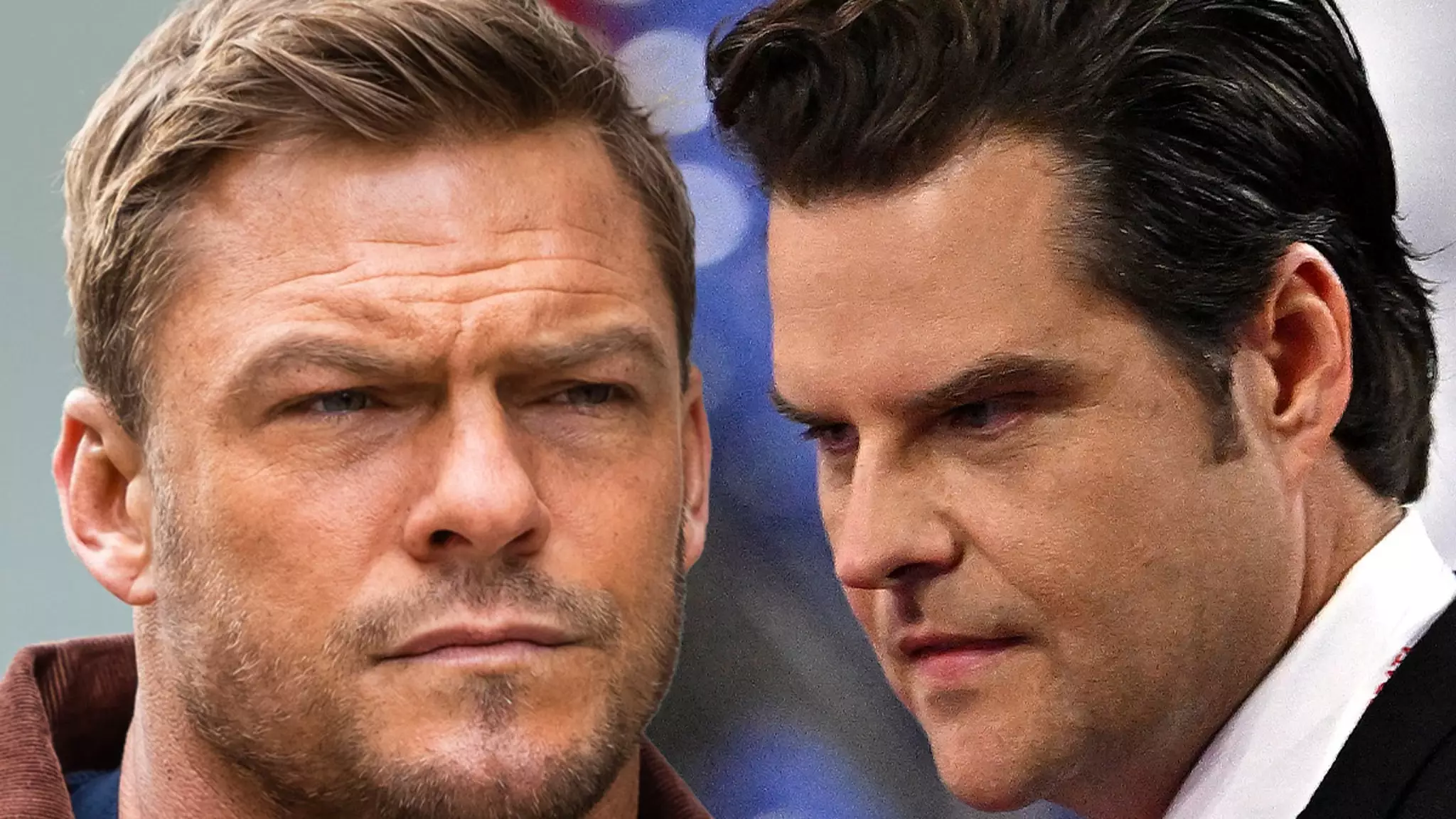In a recent interview with GQ, actor Alan Ritchson shed light on his complicated relationship with his former classmate, Matt Gaetz, the controversial figure who once served as a Congressman from Florida. Ritchson’s candid remarks illustrate a profound disconnect between their paths. Growing up together in Niceville, Florida, where both their families resided, one can imagine a benign childhood filled with innocent escapades. However, Ritchson’s comments signal that any familiarity has been overshadowed by political and ethical discrepancies.
Ritchson’s hostility towards Gaetz is palpable, as he openly labels him as an “adversary” and expresses dismay at the ongoing support Gaetz receives from voters in the Florida panhandle. This reaction resonates with many, especially in light of Gaetz’s troubled tenure in public office and the serious allegations that marred his political career. Ritchson’s assertion of Gaetz being “not a good dude” is not merely personal disdain, but an embodiment of a broader public sentiment regarding politicians who, having been accused of various misconducts, continue to maintain their positions in the political arena.
Political Aspirations and Ethical Dilemmas
Interestingly, Ritchson muses about his potential foray into politics as a way to challenge figures like Gaetz. However, he quickly dismisses the idea, attributing his hesitation to a perceived lack of the “duplicitous” nature he believes is necessary to navigate the murky waters of political success. This admission reveals a candid self-awareness, suggesting Ritchson grapples with the moral complexities of political life. It brings forth an essential question: Can virtue coexist with ambition in a climate saturated with ethical breaches?
As Ritchson navigates topics from his struggles with substance use to fatherhood, it is evident that his disdain for Gaetz is not an isolated sentiment but part of a larger narrative surrounding accountability and moral integrity in public service. The comparison to superhero archetypes, such as Jack Reacher—his role in the Amazon series—casts Gaetz somewhat humorously as an antagonist, inciting visions of dramatic confrontations between the righteous and the unscrupulous.
The Broader Implications of Celebrity Commentary
Ritchson’s critical stance inadvertently highlights a mounting trend where celebrities are using their platforms to address political and social issues directly. As public figures become more vocal, the lines between entertainment and politics blur, raising questions about the effectiveness of celebrity advocacy. When actors and actresses enter the political discourse, they often face scrutiny over their qualifications, motives, and authenticity, complicating the potentially positive impact they might have.
Moreover, Ritchson’s remarks can serve as a call to action for voters to scrutinize their representatives closely. In an age of misinformation and polarization, the insistence on accountability becomes crucial. Celebrities, like Ritchson, who articulate their views transparently, can either amplify important issues or inadvertently polarize further—underscoring the delicate balance they must maintain.
Alan Ritchson’s reflection on his relationship with Matt Gaetz serves not just as a critique of a former classmate but a commentary on the current political landscape. It emphasizes the responsibilities accompanying celebrity status and the need for ethical governance, highlighting a societal yearning for integrity and transparency in politics.

